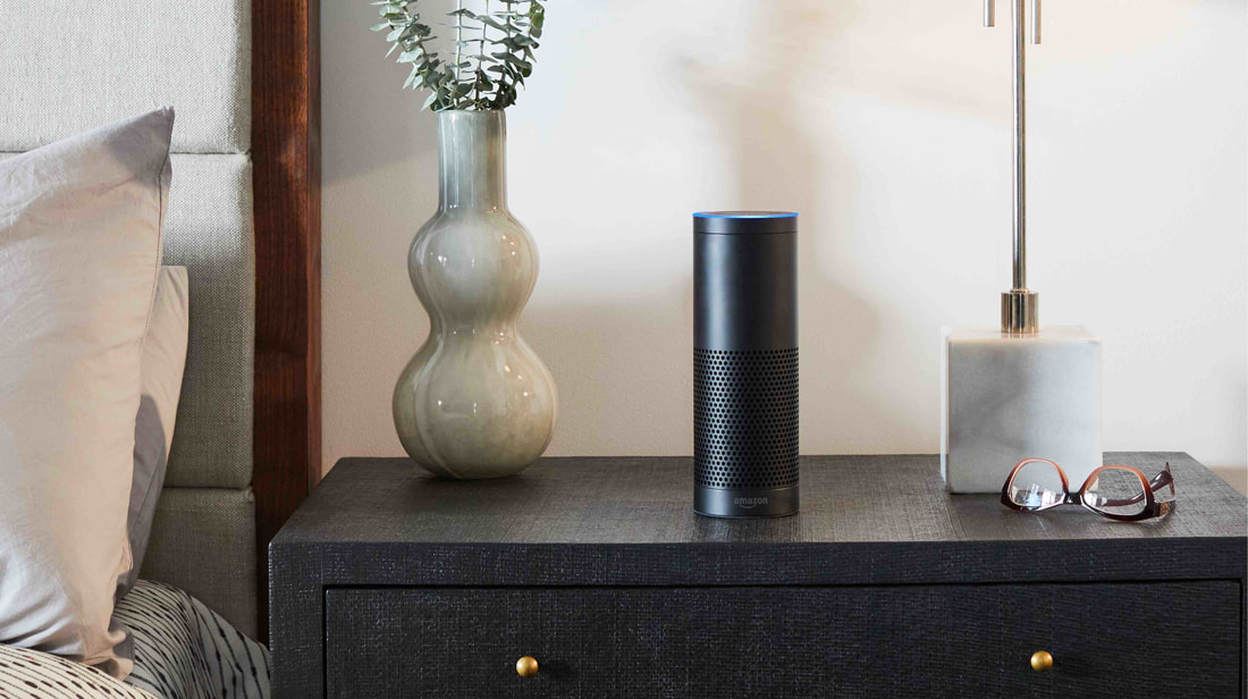|
Until very recently, little technology was available to help older people “age in place” – that is, continue living in the comfort, privacy and security of their own homes, rather than a senior residence or nursing home. For years, the only game in town was the so-called life pendant, frequently advertised on TV. You remember the ads: an elderly woman living on her own has fallen and can’t get up. But she’s wearing an electronic pendant with a button she can push to alert the authorities that she’s in trouble. Such “technology” has been available for decades. The only problem with the life pendant – technically known as a “personal emergency response system,” or PERS – is that it’s designed to help only after an emergency has occurred. In just the past couple of years, however, technology companies have developed a slew of applications to help elderly residents remain in their homes. A recent Washington Post article highlighted a number of new and soon-to-be-launched products that are designed more to prevent emergencies than respond to them. A company called LifePod is adopting voice technology such as the Amazon Echo and Google Home to help keep an eye on seniors who live alone. Using Alexa, the voice of Amazon Echo, LifePod can periodically check in with an elderly resident and even remind them to take their medication. From the Washington Post article: “Voice-assistive technologies like the Amazon Echo, Google Home and HomePod are likely to play a bigger role in helping seniors age in place, especially when paired with apps geared specifically for senior living, predicts Majd Alwan, executive director of the LeadingAge Center for Aging Services Technologies (CAST).” An app called AskMarvee, for example, “integrates with Amazon Echo via an online portal to allow seniors to immediately connect with family members for a quick check-in or if something more serious is going on.” In Japan, they’re even experimenting with robots to help support the elderly. For now, the experiments are limited to hospitals and nursing homes. But the Japanese government hopes that by 2020, some 80 percent of the elderly in Japan will receive care from robots, according to a recent report in The Guardian newspaper. “Japan’s culture provides a ripe environment for widespread acceptance of robots,” according to the report. “Since the dawn of automation, its society has generally accepted and trusted robots.” Whether elder-care robots would be accepted in the United States remains to be seen. But less-futuristic applications already are available. In addition to voice technology like Alexa, companies including Alarm.com offer home-monitoring systems that employ cameras, microphones and motion detectors. Such systems allow the children of an elderly mom, for instance, to see if she “is moving around, if she’s sleeping (or not), if she forgot to lock the door and, based on a sophisticated algorithm that detects behavioral patterns, whether her activity level or eating habits have changed significantly.” Alarm.com’s system costs $45-$60 per month, according to the Washington Post, plus a one-time installation fee. Simply installing video cameras in a senior’s home can help provide peace of mind for his or her family. At Twin Lights Home Care, we learned this first hand when the daughter of a client sent us a video clip showing an interaction between her mother and a live-in aide we provided. The mother, who has dementia, repeatedly called the aide into her room, but couldn’t remember why. After a while, the aide challenged the client about why she kept calling her – even though the aide was aware of the woman’s condition. The client’s daughter was rightfully concerned. There was something about the aide’s tone of voice the daughter didn’t like. The aide had a long track record of providing excellent service, and she likely was tired after being kept awake for many hours. But the daughter’s concern was enough for us to bring in a new aide to care for her mother. The video camera provided essential information about both the client and aide, allowing us to evaluate their relationship and bring in an aide who was better suited to that particular client. Written by T.J. Foderaro
1 Comment
My crash course in the confusion, frustration and heartbreak of caring for an elderly parent began on the afternoon of Dec. 31, 2014, as I was making final preparations for a New Year’s Eve party. I had just picked up lobster and Champagne when my 81-year-old mother called to say she didn’t feel well. She sounded awful, so after putting the lobster on ice, I drove from my home in Fair Haven to her condominium in Highlands. Soon we were en route to her doctor in Shrewsbury, and by early evening we were in the emergency room at Riverview Medical Center in Red Bank. The attending physician said my mother had pneumonia and would have to be admitted. My dinner party was off. After 10 days in the hospital, my mother finally was ready to go home. But she was still weak and increasingly disoriented. Her father had died of Alzheimer’s disease in his early 80s, and my mother had never been in the best of health. A week after returning home, she was back at Riverview, this time for almost two weeks. And so it went for the next several months, as my mother rotated between her condo, Riverview and the rehab unit at King James nursing home in Atlantic Highlands. After her third or fourth stay at King James, the social worker there broke the news: My mother no longer was strong enough or alert enough to live on her own. What? My mother was a graduate of a top women’s college, had a long career as a newspaper editor and journalism professor – was among the smartest and most capable people I’d ever known. I still had the mindset that it was I who needed her help – not the other way around. Now, suddenly, my sister and I had to figure out how to take care of our mother. King James talked to us about the nursing home option, but my mother adored her condo overlooking Sandy Hook Bay and her many friends in the building. It would kill her to give that up for a nursing home. That meant finding someone to take care of her at home. There were so many options, each more expensive than the next. A visiting-nurse service offered round-the-clock nursing care -- at $600 per day. But my mother didn’t need full-time medical care. What she needed was someone to keep an eye on her, help cook and clean and do laundry, and keep her company. My sister and I didn’t know where to begin. We had never considered that we might have to hire someone to move in with our mother. How would we pay for it? How would our mother react? What if she didn’t like the person? Where would we find a capable, compassionate aide we could trust and afford? It took us nearly two years to answer that question. Along the way, we learned many valuable lessons about caring for an elderly parent -- mostly learned the hard way through trial and error, with one misstep after another. My sister and I had an advantage: We’re both journalists by training. We’re good at asking questions and finding people who have the answers. But nothing could have prepared us for this journey. There were new terms and concepts to digest -- medical, financial and legal. There were the challenges of managing my mother’s aide -- and managing their relationship with each other. There were rich life lessons about helping a parent -- my mother, who had given so much of her life to help me -- prepare for the end. Six key things I learned while seeking full-time care for an elderly parent: 1. Plan ahead: Our experience would have been much less frustrating and upsetting if we had discussed a plan of care when my mother was still fully engaged. If you’re the parent: Tell your children you’d like to discuss how you would want to be cared for if you no longer can live on your own. If you’re a child of an elderly parent: Tell your mother or father you want to get their thoughts on the subject. Be sure to involve all of your siblings. It’s very common for siblings to feud when it comes time to decide how to care for a dependent parent. Reaching an agreement -- or at least an understanding -- ahead of time will go a long way toward preventing unnecessary conflict later on. 2. Review your finances: The best time to figure out what options you can afford is long before an elderly parent needs full-time assistance. Figure a monthly budget based on reliable income and typical expenses. Add up your liquid assets (cash, stocks, bonds, etc.) and subtract any debts (mortgage, car loans, etc.). The difference is how much you have to spend on long-term care. Keep in mind that the average nursing home now costs more than $100,000 per year. Hiring a live-in aide can cost substantially less, but you’ll still want to budget $50,000-$60,000 per year -- in addition to your other living expenses. 3. Consider buying long-term care insurance: My mother carried a long-term care policy for a number of years, but let it lapse before she needed it. These policies are not cheap, and they get significantly more expensive as the policyholder ages. But if you can afford the premiums, long-term care insurance can substantially reduce the amount of money you pay out of pocket later on. 4. Hourly versus live-in care: If you need full-time medical care, there are only two options: a nursing home or a visiting-nurse service. A visiting-nurse service will allow you to stay in your home, but the nurses are paid hourly. If you need 24-hour coverage, the cost could be $500 per day or more. If you don’t need full-time medical care, then a home-health or home-companion aide is a more-affordable option. 5. Agency vs. “private-duty” aides: We initially hired an agency to provide a live-in aide for our mother. It seemed like the easiest way to go, since we had no idea how to go about finding someone who might work for us privately. The first aide the agency sent seemed very nice, but over time it became clear she wasn’t the right fit. The aide was devoutly religious -- and wore those beliefs on her sleeve. She kept the TV tuned to sermons by Bible-thumping preachers. But my mother was not religious, and soon she was expressing irritation with the aide. After a couple of months, the agency replaced the first aide with a second aide who also seemed nice at first. But then she started asking her boyfriend to come for occasional visits. Then to have lunch and dinner. When we discovered this, we voiced our displeasure to the agency, and we were on to aide No. 3. And so it went for the next 18 months, during which my mother went through 7-8 different aides. Finally, with help from a former employee of the agency, I found a very sweet woman who agreed to work for my mother on a “private-duty” basis. The aide, Catherine, got a long very well with my mother. And because she was private duty, the cost was quite a bit less than going through an agency -- most of which charge administrative fees that can add up. But Catherine occasionally needed time off for her personal life, and finding replacements was extremely difficult and frustrating. On a few occasions, I spent nights with my mom, even though I have three children of my own. Managing the aide without the help of an agency proved to be very stressful for my sister and me. 6. Find an agency you can trust: We tried several agencies and looked at several more, but frankly never felt comfortable with any of them. In most cases, the owners seemed more interested in processing bills than providing good service. Most, in fact, were franchises of national companies whose headquarters are far from New Jersey. When looking at agencies, consider the following criteria: a. Is the agency locally owned and operated? b. Can they provide you with references from existing clients? c. Do the owners talk more about fees and rules, or spend more time asking about you and your needs? d. Do they try to sell you on their agency, or provide you with good information about their services and fees? e. Are they up front about any extra fees they charge, in addition to their basic daily rate? f. Do they give you a few minutes of their time on the phone, or do they offer to visit the home and introduce you to the aide beforehand? g. Are they readily available for follow-up questions -- or do they take hours to return your calls? h. Who from the agency is available nights and weekends to answer questions or address concerns? i. Do they come off as kind and caring? A final thought: I started Twin Lights Home Care because none of the agencies I used or considered met those criteria. My partner and I, both lifelong Monmouth County residents, abide by three simple rules: 1. Match clients with aides best suited to meet their needs. 2. Always be available to clients and their children. 3. Offer the most affordable rate. Please give us a call if you’d like to find out how we do it. We’d be happy to share feedback from our clients. Written by T.J. Foderaro
|
AuthorT.J. Foderaro Archives
February 2020
Categories
All
|
Copyright © 2023, Twin Lights Home Care, All RIghts Reserved


 RSS Feed
RSS Feed
